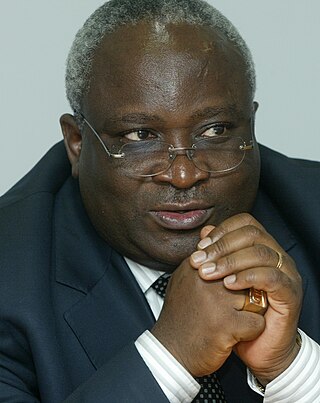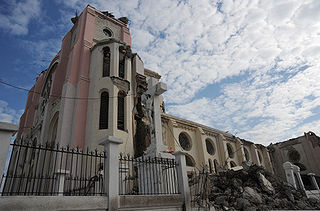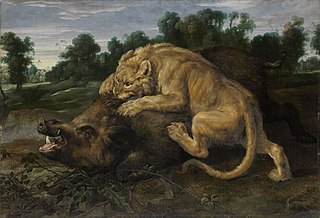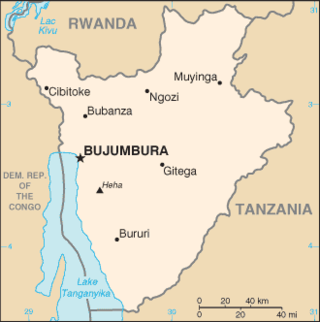 |
|---|
The following is a list of Burundian politicians, both past and present since independence in 1962.
 |
|---|
The following is a list of Burundian politicians, both past and present since independence in 1962.

The Prix de Rome or Grand Prix de Rome was a French scholarship for arts students, initially for painters and sculptors, that was established in 1663 during the reign of Louis XIV of France. Winners were awarded a bursary that allowed them to stay in Rome for three to five years at the expense of the state. The prize was extended to architecture in 1720, music in 1803 and engraving in 1804. The prestigious award was abolished in 1968 by André Malraux, then Minister of Culture, following the May 68 riots that called for cultural change.

Domitien Ndayizeye is a Burundian politician who was President of Burundi from 2003 to 2005. He succeeded Pierre Buyoya, as president on 30 April 2003, after serving as Buyoya's vice president for 18 months. Ndayizeye remained in office until succeeded by Pierre Nkurunziza on 26 August 2005.

Pierre Buyoya was a Burundian army officer and politician who served two terms as President of Burundi in 1987 to 1993 and 1996 to 2003. He was the second-longest-serving president in Burundian history.

The Union for National Progress is a nationalist political party in Burundi. Initially it emerged as a nationalist united front in opposition to Belgian colonial rule but subsequently became an integral part of the one-party state established by Michel Micombero after 1966. Dominated by members of the Tutsi ethnic group and increasingly intolerant to their Hutu counterparts, UPRONA remained the dominant force in Burundian politics until the latter stages of the Burundian Civil War in 2003. It is currently a minor opposition party.

The position of vice-president of the Republic of Burundi was created in June 1998, when a transitional constitution went into effect. It replaced the post of Prime Minister.
Alphonse-Marie Kadege is a Burundian politician. He was Vice-President of Burundi from 30 April 2003 to 11 November 2004. He is an ethnic Tutsi and a member of the Union for National Progress (UPRONA) Party. On January 15, 2007, he was acquitted on charges of plotting a coup, along with former president Domitien Ndayizeye and three others; two others were sentenced to long prison terms. On 19 October 2020 the Supreme Court of Burundi sentenced him to prison for involvement in the murder of President Melchior Ndadaye in 1993.

The Archdiocese of Port-au-Prince is a metropolitan archdiocese, responsible for the suffragan dioceses of Jacmel, Jérémie, Anse-à-Veau and Miragoâne and Les Cayes.

An animalier is an artist, mainly from the 19th century, who specializes in, or is known for, skill in the realistic portrayal of animals. "Animal painter" is the more general term for earlier artists. Although the work may be in any genre or format, the term is most often applied to sculptors and painters.
Events from the year 1837 in France.
These are some of the articles related to Burundi on the English Wikipedia:

The 1996 Burundian coup d'état was a military coup d'état that took place in Burundi on 25 July 1996. In the midst of the Burundi Civil War, former president Pierre Buyoya deposed Hutu President Sylvestre Ntibantunganya. According to Amnesty International, in the weeks following the coup, more than 6,000 people were killed in the country. This was Buyoya's second successful coup, having overthrown Jean-Baptiste Bagaza in 1987.

Société des observateurs de l'homme, rendered in English as Society of Observers of Man, was a French learned society founded in Paris in 1799. Long considered the birthplace of French anthropology, the society nevertheless dissolved in 1804.